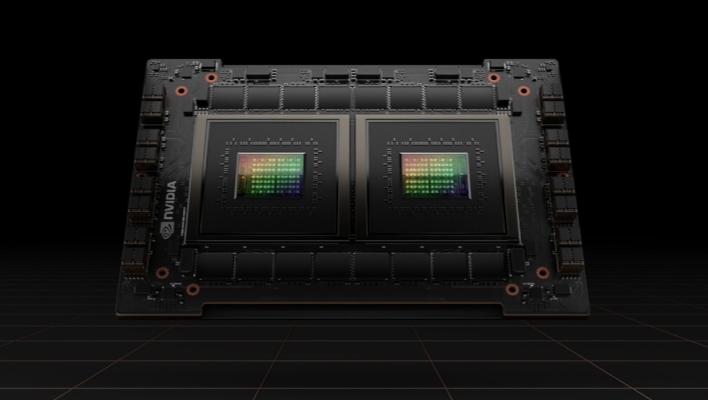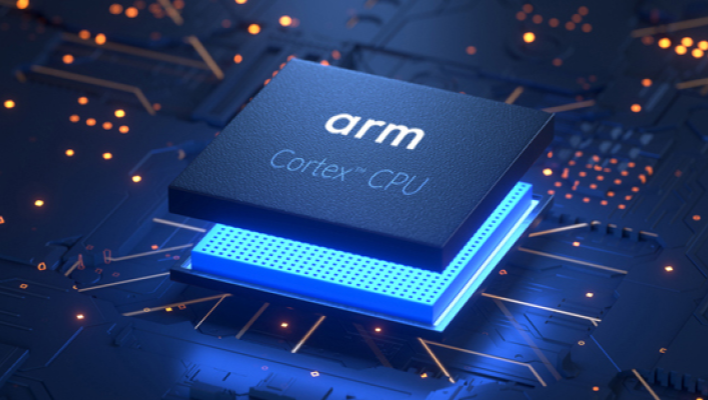NVIDIA And AMD Tap Arm To Fab Chips For Windows PCs, Should Intel Worry?

NVIDIA and AMD are being spurred on by Microsoft to develop their own ARM-based CPUs to be used in Windows PCs, according to a report from Reuters. Apple, which is a competitor of all three companies, has seen great success ever since it launched its own custom ARM-based chip, M1, in 2020. Although this move is ostensibly focused on containing Apple, it's conspicuous that Intel is seemingly left out, and it could be a problem for the recently weakened silicon titan.
Making ARM CPUs for PC would be a significant shakeup for NVIDIA and AMD. It was only last year when NVIDIA announced Grace, the first custom CPU the company has ever made, and it's for servers rather than desktops. Meanwhile, AMD became the company it is today thanks to having rights to the x86 architecture that Intel invented, and Arm the company has historically been a competitor of AMD (and Intel) thanks to its ARM architecture, for which other companies can purchase a license.
However, it's not farfetched at all that NVIDIA and AMD could change course and start making ARM chips to bolster Windows on ARM. Grace indicates that NVIDIA is skilled at making ARM CPUs, and although desktop CPUs are different from those made for servers, they're not totally alien (in fact, AMD's server and desktop CPUs share identical silicon). As for AMD, the company already had plans several years ago to make ARM CPUs. The company's K12 architecture was supposed to launch alongside Zen in 2017, but it was quietly cancelled just before then.
Making ARM CPUs for PC would be a significant shakeup for NVIDIA and AMD. It was only last year when NVIDIA announced Grace, the first custom CPU the company has ever made, and it's for servers rather than desktops. Meanwhile, AMD became the company it is today thanks to having rights to the x86 architecture that Intel invented, and Arm the company has historically been a competitor of AMD (and Intel) thanks to its ARM architecture, for which other companies can purchase a license.
However, it's not farfetched at all that NVIDIA and AMD could change course and start making ARM chips to bolster Windows on ARM. Grace indicates that NVIDIA is skilled at making ARM CPUs, and although desktop CPUs are different from those made for servers, they're not totally alien (in fact, AMD's server and desktop CPUs share identical silicon). As for AMD, the company already had plans several years ago to make ARM CPUs. The company's K12 architecture was supposed to launch alongside Zen in 2017, but it was quietly cancelled just before then.

Strangely enough, the report doesn't mention Intel making its own ARM chips, implying that Microsoft isn't tapping Intel for this effort. It could be bad news for Intel, not just because the company would be forfeiting its chance to be a part of the growing Windows on ARM PC market, but also because of anxieties about the weaknesses of the x86 architecture. In particular, a lot of hay is made about how Apple's M1 and M2 chips are so much more efficient than x86 CPUs made by Intel and AMD; Intel's efforts to make smartphone chips over a decade ago also put to bed dreams of x86-powered smartphones.
On the other hand, Intel could still play a role. Its fabs are now open for business to partners of Arm, though it's hard to imagine AMD going directly to its competitor to make CPUs. NVIDIA however may be more willing; while TSMC claims its upcoming 2nm process is far better than Intel's soon-to-launch 18A node, if this turns out not to be true then NVIDIA may switch to Intel foundries. We already know NVIDIA is looking into moving at least some of its GPUs to Intel, so it's not impossible that the company's upcoming ARM CPUs could be made there too.
In the meantime, investors reacted to the news by sending Intel's share price down in after market hours, though it's rebounding in early morning trading.

